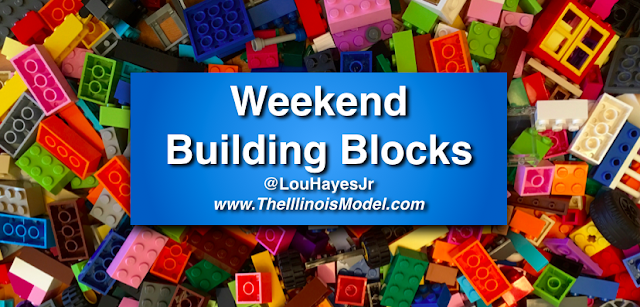Weekend Building Blocks - 06 APR 2018
There's no value in collecting blocks unless you're connecting them to build something awesome!This is a unique Weekend Building Blocks in that the first three (3) of my recommended resources deal in one way or another with mental models!
- The 3 Types of Decision Makers, Mental Models, and How to Processes Information. Venkatesh Rao is a guest on Farnam Street's podcast The Knowledge Project, with host Shane Parrish. Rao does an excellent job explaining mental models and how they impact our outlook and decisions. Listening time: 1:07
- Getting the Most Out of Your Retrospectives. Mahesh Paolini-Subramanya discusses single and double-loop thinking/learning, and the relationship with mental models. While I suggest we frequently challenge our own beliefs and assumptions (red-teaming comes to mind), I'm skeptical that we can intentionally change the mental models that are most deeply ingrained in our subconsciousness. How would implicit biases fit into this article?
- All Models Are Wrong. Another piece by Shane Parrish of Farnam Street. Ironically, I read this after I had already published my own piece quoting George Box. Parrish talks about models, including mental models, and their wrongness but usefulness.
- Rejecting the Industry. I believe this was written by Paul Gamble (if I'm wrong, please correct me in comments below). He writes on the standardization, scaling, and overall industrialization of the physical fitness community. Someone on Twitter linked one of my recent blogs to this piece, and it did resonate with me. I've been making a case for the dark side of standardization - and this piece surely supports much of my argument.
- Seven Implications of Complexity for Organisations. Sonja Blignaut builds off some points made by Paul Cilliers on complexity. Instead of providing impossible answers, Blignaut shows the tradeoffs and compromises of some of these vital issues. In what ways is your organization on track..or off track?
- Complexity Cocktails & How We Drink the Kool-Aid. Simply, there are some people whose mouths move but other people's words come out. It's a special kind of regurgitation that puts up some red flags of idol worship.
- Our Tendencies to Want Things to be More Complicated or More Complex. The more I study complexity, the more I see two (2) emerging groups: those who think analysis, data, and research can solve it all. And those who think that nothing can be solved through analysis, data, and research.
As for Weekend Building Blocks, I appreciate you allowing me to make these recommendations to you.
Lou Hayes, Jr. is a police training unit supervisor in suburban Chicago. He studies human performance & decision-making, creativity, emotional intelligence, and adaptability. Follow him on Twitter at @LouHayesJr or on LinkedIn. He also maintains a LinkedIn page for The Illinois Model.





Comments
Post a Comment